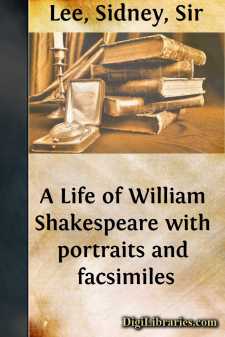Categories
- Antiques & Collectibles 13
- Architecture 36
- Art 48
- Bibles 22
- Biography & Autobiography 813
- Body, Mind & Spirit 142
- Business & Economics 28
- Children's Books 17
- Children's Fiction 14
- Computers 4
- Cooking 94
- Crafts & Hobbies 4
- Drama 346
- Education 46
- Family & Relationships 57
- Fiction 11829
- Games 19
- Gardening 17
- Health & Fitness 34
- History 1377
- House & Home 1
- Humor 147
- Juvenile Fiction 1873
- Juvenile Nonfiction 202
- Language Arts & Disciplines 88
- Law 16
- Literary Collections 686
- Literary Criticism 179
- Mathematics 13
- Medical 41
- Music 40
- Nature 179
- Non-Classifiable 1768
- Performing Arts 7
- Periodicals 1453
- Philosophy 64
- Photography 2
- Poetry 896
- Political Science 203
- Psychology 42
- Reference 154
- Religion 513
- Science 126
- Self-Help 84
- Social Science 81
- Sports & Recreation 34
- Study Aids 3
- Technology & Engineering 59
- Transportation 23
- Travel 463
- True Crime 29
Shakespeare and the Modern Stage with Other Essays
by: Sidney Lee
Description:
Excerpt
I
I
Without "the living comment and interpretation of the theatre," Shakespeare's work is, for the rank and file of mankind, "a deep well without a wheel or a windlass." It is true that the whole of the spiritual treasures which Shakespeare's dramas hoard will never be disclosed to the mere playgoer, but "a large, a very large, proportion of that indefinite all" may be revealed to him on the stage, and, if he be no patient reader, will be revealed to him nowhere else.
There are earnest students of Shakespeare who scorn the theatre and arrogate to themselves in the library, often with some justification, a greater capacity for apprehending and appreciating Shakespeare than is at the command of the ordinary playgoer or actor. But let Sir Oracle of the study, however full and deep be his knowledge, "use all gently." Let him bear in mind that his vision also has its limitations, and that student, actor, and spectator of Shakespeare's plays are all alike exploring a measureless region of philosophy and poetry, "round which no comprehension has yet drawn the line of circumspection, so as to say to itself 'I have seen the whole.'" Actor and student may look at Shakespeare's text from different points of view: but there is always as reasonable a chance that the efficient actor may disclose the full significance of some speech or scene which escapes the efficient student, as that the student may supply the actor's lack of insight.
It is, indeed, comparatively easy for a student of literature to support the proposition that Shakespeare can be, and ought to be, represented on the stage. But it is difficult to define the ways and means of securing practical observance of the precept. For some years there has been a widening divergence of view respecting methods of Shakespearean production. Those who defend in theory the adaptability of Shakespeare to the stage are at variance with the leading managers, who alone possess the power of conferring on the Shakespearean drama theatrical interpretation. In the most influential circles of the theatrical profession it has become a commonplace to assert that Shakespearean drama cannot be successfully produced, cannot be rendered tolerable to any substantial section of the playgoing public, without a plethora of scenic spectacle and gorgeous costume, much of which the student regards as superfluous and inappropriate. An accepted tradition of the modern stage ordains that every revival of a Shakespearean play at a leading theatre shall base some part of its claim to public favour on its spectacular magnificence.
The dramatic interest of Shakespearean drama is, in fact, deemed by the manager to be inadequate to satisfy the necessary commercial purposes of the theatre. The average purveyor of public entertainment reckons Shakespeare's plays among tasteless and colourless commodities, which only become marketable when they are reinforced by the independent arts of music and painting. Shakespeare's words must be spoken to musical accompaniments specially prepared for the occasion....



